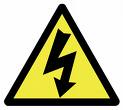How Much Power Does the Internet Consume?
[Translations: Japanese]
I see the web, and the internet foundation it resides on, as one large machine. This manufactured device is spacialy the biggest machine we have. It is also the most complex contraption we’ve made. And it is the most reliable machine we know. It has many other attributes that are invisible because we don’t see it as one machine.
In my efforts to specify this One Machine, I’ve been trying to nail down some of its basic dimensions. How many chips does the global web use? What kind of computing power, storage, bandwidth does it encompass over its global span?
For instance my investigation into how often people around the world searched the web produced my rough approximation that global search runs at a frequency of 14 kilohertz — 14,000 searches per second. A billion or more searchers per day.

A key metric of this One Machine would be its power usage. How much power does the global internet use? I figured this is a very answerable question, so I commissioned the researchers at Uclue to dig up the answer. I will rephrase the summary results here.
Category…………………………………………….US-Consumption…….World-Consumption
…………………………………………………………………..Billion kWh……..Billion kWh
(1) Data Centers (includes cooling)…………………45…………………….112.5
(2) PCs&Monitors………………………………………….235……………………..588
(3) Modems/routers/etc………………………………….67……………………….167
4) Phone network…………………………………………..0.4………………………1.0
Total electricity demand ……………………. ~350 billion kWh ~868 billion
of the Internet ……………………………………………….U.S…………………..World
There are many faults with this tally. For one, the PC/Monitor figured is calculated using data about PC consumption taken from 1999 and 2000, when most computers were using large power-hungry CRT monitors, Flat screen monitors and laptops burn less energy than CRTs, and so might be expected to lower electric consumption. But, on the other hand, they use faster/hotter chips. None of the categories include the power needs of cell phones and PDAs, which while small, are often recharged using adaptors that stay on using electricity 24/7/365. All in all, while miles from being perfect, this tally is currently the best estimate we have. Thus, the 868 billion kilowatt hours consumed by the global internet equals about 5.3% of the total electrical consumption of the world. This One Machine eats 5% of our electricity. Now.
Since it is the fastest growing machine we have known, the One Machine will continue to consume an increasing percentage of available resources — power, water, money, and the most precious commodity of all, human time.


